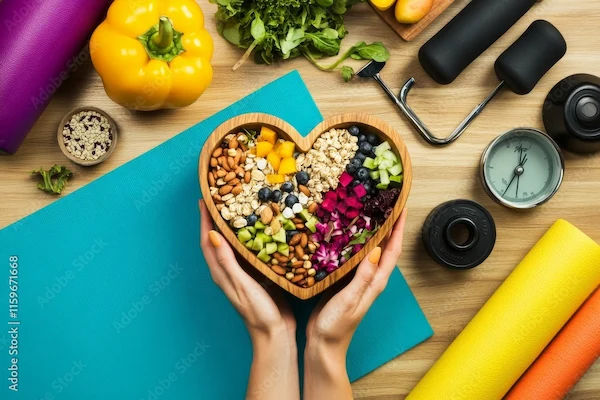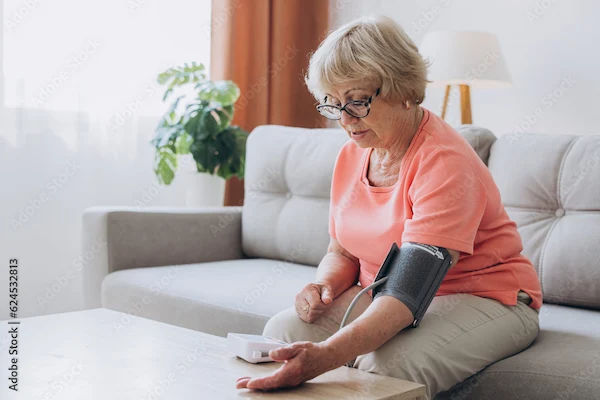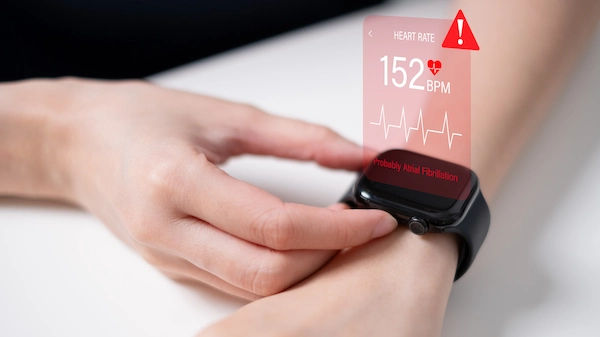- male
- 60 Years
- 01/04/2021
Does your body warn you before a heart attack?
Answered by 1 Apollo Doctors
Yes. Chest discomfort. It can feel like uncomfortable pressure, squeezing, fullness or pain. Discomfort in other areas of the upper body Shortness of breath. This can occur with or without chest discomfort. Other possible signs include breaking out in a cold sweat, nausea or lightheadedness.
Dr. Shubham Suggests...
Consult a Cardiologist
Answered 04/07/2025
0
0


Ask Apollo
AI powered Health Chatbot
-
Common Warning Signs Before a Heart Attack
- Chest discomfort or pain, often described as pressure or squeezing.
- Shortness of breath, even without chest pain.
- Sudden sweating, nausea, or vomiting.
-
Less Typical or Atypical Symptoms
- Unexplained fatigue or weakness.
- Pain in the jaw, neck, or back.
- Light-headedness or feeling faint.
-
Importance of Recognizing Symptoms Early
- Early recognition can save lives by allowing prompt medical intervention.
-
When to Seek Immediate Medical Help
- Call emergency services if you experience severe chest pain, sudden shortness of breath, or any combination of the symptoms mentioned.
-
Preventive Measures and Regular Check-ups
- Maintain a healthy lifestyle, take prescribed medications, and schedule regular health screenings.
-
Relevant Medical Specialties and Tests
- Consult a cardiologist.
- Diagnostic tests like ECG or blood tests can help evaluate heart health.
Recommended next steps
Consult a Cardiologist or Take a CBC Test (Complete Blood Count) Test
Answered 20/08/2025
0
0
More Cardiology Health Queries
View allI'm really concerned about my father's heart condition. His report says the LVEF is 25, which I read somewhere is quite low, and theres mention of severe LV systolic dysfunction. The terms like "Grade mitral regurgitation" and "moderate pulmonary arterial hypertension" caught my attention. Can you help me understand what all this means? Also, what should we be doing next to manage or improve his heart health?
That seems to your father is at risk of serious cardiac disease with this report no need to worry its conservative management,follow cardiologist advice and reduce physical activity.
Answered by 1 Apollo Doctors
I'm trying to understand something from an ECG report I received. It says "ECG within normal limits, sinus rhythm, no ST T changes." What does all this actually mean? Is there anything here that I need to be concerned about or pay attention to? Could you please explain it to me?
ECG within Normal Limits means that the electrical activity of your heart is normal. Sinus rhythm indicates that the heart is beating at a normal rate and rhythm. No ST T changes suggest that there are no signs of heart muscle damage or inadequate blood supply to the heart. This is a good result and indicates that your heart is functioning well. It is important to continue with a healthy lifestyle, including regular exercise, a balanced diet, and avoiding smoking and excessive alcohol consumption to maintain a healthy heart. If you have any specific concerns or symptoms, it is always recommended to follow up with your healthcare provider for further evaluation.
Answered by 1 Apollo Doctors
I've been feeling my pulse really strongly all over, like in my head and fingers, for about a year now. I went to see a doctor and he did an ECG, but it came back normal. He said it's not a disease and might just be stress. I'm really curious if there's anything I can do to make this go away. Any suggestions would be helpful.
Having a strong pulse that can be felt in various parts of the body can indeed be related to stress. To help reverse this, you can try relaxation techniques such as deep breathing exercises, yoga, or meditation to help reduce stress levels. Additionally, you can consider taking a beta-blocker medication such as Metoprolol (25-50mg once daily) to help lower your heart rate and reduce the sensation of a strong pulse. It's important to continue following up with your doctor for further evaluation and management.
Answered by 1 Apollo Doctors
Disclaimer: Answers on Apollo 247 are not intended to replace your doctor advice. Always seek help of a professional doctor in case of an medical emergency or ailment.




.webp)
